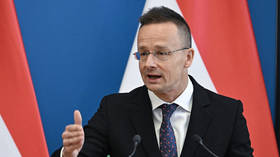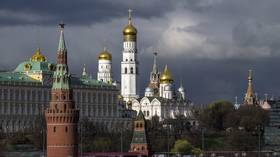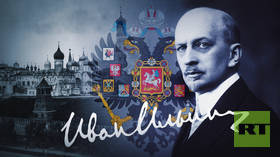The benefits for Russia of buying into Opel
By the end of the year, the Russo-Canadian joint venture will reach a deal to take a stake in Opel. But what does the Russian side gain?
The key points approved, but most of the work still lies ahead. Russia's Sberbank gets half of the majority stake in Opel – and it's looking to conclude the deal by the end of the year. For the bank, besides the prestige – it's an investment according to Sberbank Deputy Chairman, Anton Karamzin.
“In terms of our commitment it is of secondary importance how long does it stay on our balance sheet or in what form support takes place. We have set out a strategic goal: this is a financial investment for us, Howe ever, we are as a financial institutions committed to achieving long term success and doing our best to ensure long term success of this enterprise, because we believe the success of OPEL in this configuration will be success for all the parties: GM, OPEL itself, MAGNA, Russian car industry.”
Gaining technology – is seen as a key objective for Russia in the deal. Gaz group, as a partner to the bidders, will assemble Opel cars in Nizhnii Novgorod.
GM is to get royalties from each car sold. Magna has also announced production plans for Russia where Mikail Pak, Senior Analyst at Aton, says there is a lack of auto component makers.
“The company is going to produce a million Opel's here in Russia, so there will be a huge market for those companies supplying auto components. However, we don't have a lot of auto components in Russia.”
Russia's car industry suffers from outdated technology, poor quality, and producers survive behind a wall of import tariffs. The deal offers hope of a new start, fired by foreign technology.
GM has not been keen to sell technology to Russia – one reason the negotiations to sell Opel took so long. But observers like Dr Frank Schauff, Head of the Association of European Business in Russia, also question the true value of that technology to Russia.
“It depends on what the Russian side wants. If its a question of getting new technology – yes. If the Russian side assumes that this helps as such in modernising Russia, its only helping in a limited way because it does help to bring new technology but this new technology will be outdated in 5 to 10 years again. So then new technology has to be brought ion again. It doesn't really help in the first instance to generate new technologies here in Russia. Therefore, you would need some other mechanism to work.”
More than technology, observers say Russia needs a completely new culture of management and innovation. Russia has used Opel's know how before back in 1947, building the Moskvich 400. History shows that just acquiring technology is not an answer, if you don't research and develop like the Korean and Japanese. Otherwise Russia is likely to end up with the car like this – with great history but belonging in the museum.












